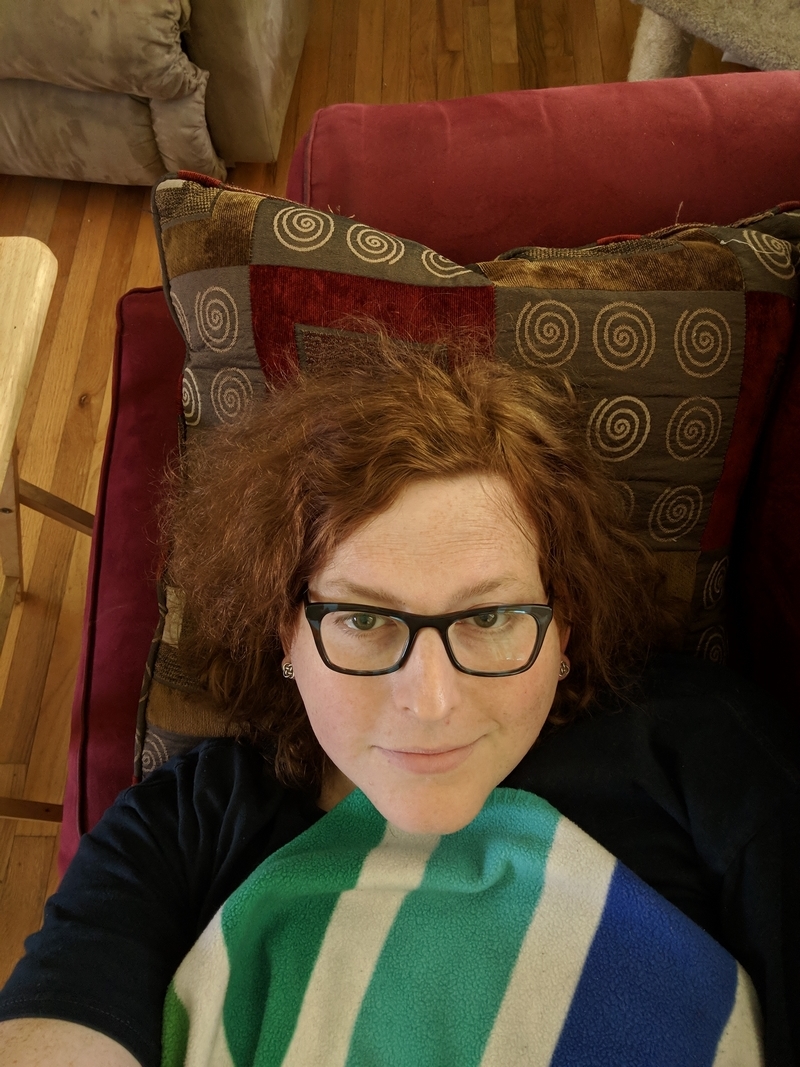Erin Castillo

- Role: Founder, host, and tech priestess
- Company: That DnD Podcast
- Location: Baton Rouge, LA
We chatted with Erin, the founder of That DnD Podcast.
QRM: Can you tell us a little bit about who you are and what you do in the games industry?
Erin: I have done a bunch of interviews with folks in the queer/indie tabletop scene, have run an actual play podcast for 4 years and am dipping my toes into game design now!
QRM: How long have you been involved in the game industry, and what projects have you worked on? What are you working on currently?
Erin: Playing for 6 ish years, podcasting for 4, started working on making them this year.
QRM: What inspired you to get started in the games industry?
Erin: All the rad people I met and all of the fantastic games I played that weren't D&D [Dungeons & Dragons] and told stories from other viewpoints.
QRM: In what ways do you feel your experiences as a queer person manifest in the games you work on, and influence the work you do?
Erin: Being trans, I find that I tend to seek out ways to tell my story. To talk about being a person in a marginalized group in today's world and trying to get a leg up somehow.
QRM: Do you have a favourite queer character—in games or media more generally? If so, what is it about them that makes them your favourite?
Question asked by @kamienw.
Erin: Korra from The Legend of Korra. Her queerness was a big part of her, but it wasn't THE ONLY THING about her. She was a well-rounded person with drives and setbacks and emotions and it helped drive home the point that anyone can be queer; even your heroes!
QRM: Have you ever encountered roadblocks in trying to include queer characters in games? What do you think is preventing greater diversity within games?
Question asked by @dustinalex91.
Erin: I want to have games that require you to play a marginalized character in some way, but worry that people will write the game off as gimmicky or "too political".
I think greater diversity is being hampered by people feeling that they have no safe space to play. A lot of groups are cis-het-white-centric and it can be a daunting thing for someone to just step into, especially since RPGs have such a vulnerability requirement of the players.
QRM: Why do you think it is important that queer audiences are able to see themselves represented in the games they play, and in the developers who make the games they see? What can we do to improve the industry for queer audiences and devs?
Erin: It is very important for queer folks to see themselves and their stories in games. It helps to show that they are welcome, they are part of the community, and their stories are worth being told.
Having avenues for showcasing queer work and creators could go a long way towards helping get word out about games in the space.
QRM: Have you ever mentored somebody in your role in games, or been mentored? If so, what made these experiences worthwhile for you?
Question asked by @pepelanova.
Erin: I've been given guidance by a large number of people in the queer tabletop space and it has made a ton of difference for me because they are insights from people I am directly trying to make games FOR. The sanity checks and the input on whether something reads well and resonates well is immensely helpful.
QRM: In what ways can non-queer folk increase and support queer diversity present within games, as well as in the industry more broadly? How can we all work to support intersectional approaches to diversity, and why is this important?
Erin: Non-queer folks can help by being open-minded, not only in the games they play but who they play games with. Being willing to reach outside of your 'comfort zone' can help a lot to bring new insights and people into your life.
We can all work to support intersectional diversity by playing games and supporting creators of ALL walks of life, whether separated by gender or orientation or nationality or belief. Plants grow best when given a variety of nutrients, and people grow best when exposed to different lives and views.
QRM: Is there a message that you would like to share with the queer game players, game studies researchers, and other interested folks who comprise the Queerly Represent Me community?
Erin: It's worth it! You are worth it! Your story is worth being told, your experiences are valid. You are a worthwhile and wonderful person and there is a community here to support you. All you need to do is ask
*
